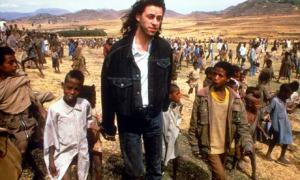
Photo Credit: Jeremy Pue, Whitewater Productions. “A Road on Keats Island”
The photo above is one of the few roads on Keats Island and where our Better with Age retreat will be held. I love how the image draws you forward, but you do not know where it goes once you’re deeper into the forest. I do know that this road does come to a point where you have to make a decision to go right or go left.
It has been my lifelong commitment to inspire souls to lead, to find strength in their convictions, and to empower their steps with unwavering confidence. Now, as I reflect on the inevitability of my own aging, I recognize the need for those skills to adapt and endure. That is why I joined my dear friends, Dr. Paul Pearce and Dr. Paul Stevens, who taught a course at Regent College called “Aging Matters,” based on Stevens’s book. This is also why my wife Glenda, Paul and I are facilitating a retreat for Baby Boomers in partnership with Barnabas Landing called “Better with Age.”
Better with Age allows Baby Boomers to delve into matters of calling, spirituality, and legacy in retirement. In this environment, we want to be encouraged to continue to discern our purpose as we grow older and remain meaningfully engaged for the rest of our lives. We want you to better understand this season of life and reframe retirement as a time of continued calling and productivity. Better with Age points to biblical wisdom that can help us redefine aging as an extraordinarily fruitful season of life.
The Fork in the Road – Acceptance or Denial?
I found myself, much like you might have, standing at a metaphorical fork in the road. One path, worn by the countless footsteps of the courageous, is the thoroughfare of acceptance—a road where we acknowledge the reality of our age with clear eyes and a full heart. The other path is denial, coated with the veneer of youth—a tempting detour that leads one into a mirage, away from the weight of years and the truth they carry.
Choosing the road of aging is far from waving a white flag; it is an act of courage. It’s an uprising against the fear of irrelevance, a bold declaration that our sunset years can be as enriching as the dawn of our youth. Here, real love flourishes, the kind that endures beyond transitory feelings—a resilient garden blooming from the seed of commitment nourished by actions and deeds.
Guidance Through the Uncertainties of Aging
Allow me to impart some guidance drawn from years of whispering courage into the hearts of leaders, many of whom struggle in the twilight of their careers:
- Acknowledge Change: Recognize the transformation in your body and mind as a natural progression of life, not as an enemy to be contested but as a companion on your journey. This acceptance paves the way for peace and prepares the arena for untapped growth.
- Invest in Healthy Living: We must learn and practice skills to maintain vitality. Prioritize wellness, engage in activities that nourish your body, and cultivate habits that anchor your mental health. Remember, well-being is a discipline, not a mere stroke of luck.
- Cultivate Lasting Bonds: True affection stems from the roots of shared experiences and weathered storms. Commit to your relationships, be they professional or personal, and watch as affection deepens into a resilient bond that time can only strengthen, not wither.
- Legacy of Leadership: Aging as a leader bestows upon you the rare opportunity to reflect not only on successes but also on the wisdom harvested from trials. Pass down this legacy. Mentor the young, ignite purpose in their endeavours, and gift them with a compass that points toward integrity and authentic living.
- The Virtue of Adaptability: In a world that glorifies perpetual youth, be the voice that champions adaptability. Model how one can simultaneously honour the past and gracefully evolve to adopt new perspectives, skills, and roles.
Forks and Roads – A Personal Anecdote
Like you, I, too, encountered this fork. I was living the “Life of Carson,” as my doctor once told me, and on the road of denial, thinking I could do everything I have always been able to do. Well, that is not true anymore. Now I chose the road of aging—the less-travelled road, and I am learning about new things and seeing how God still has purpose for us as we age. I accepted the graying of my hair as a crown of wisdom, and although my family DNA does not seem to flood my top with grey, I do see more than I did last year. The new lines on my face are etchings of both joy and sorrow, borne with equal grace.
What changed my perspective? In 2022, I spent three weeks in a hospital ICU. I was having a multitude of tests done on my heart due to an incident. That experience caused me to face, with some evidence, that I was getting older. To be honest, I fought it, but in quiet moments, while resting in my hospital bed, I realized I was entering what I now call the third period of the hockey game and with no promise of overtime. I came out of the hospital with an ICD, and a different lifestyle. This choice to accept my getting older has not been without its struggle, but it has been illuminated with an authenticity that actually makes life even better.
What road are you on? Pause. Reflect. Then, stride forward, knowing that you do not walk it alone. We all are learning lessons. My insights and yours are like lanterns left to light the way for others. May they guide you to lead with conviction as you inherit the mantle of your twilight sage.
In closing, remember readers, the roads we select will wind and weave differently for each of us, but the horizon is shared—the dusk of our days. As the Scriptures share, we do not number our days, but we can choose how we will live them. Aging is neither the end of the road nor the cessation of influence; it is a continuance, a testament to the lives we’ve moulded, the leadership we’ve inspired, and the legacy we leave behind.
Lead on, not despite your years, but because of them.


























